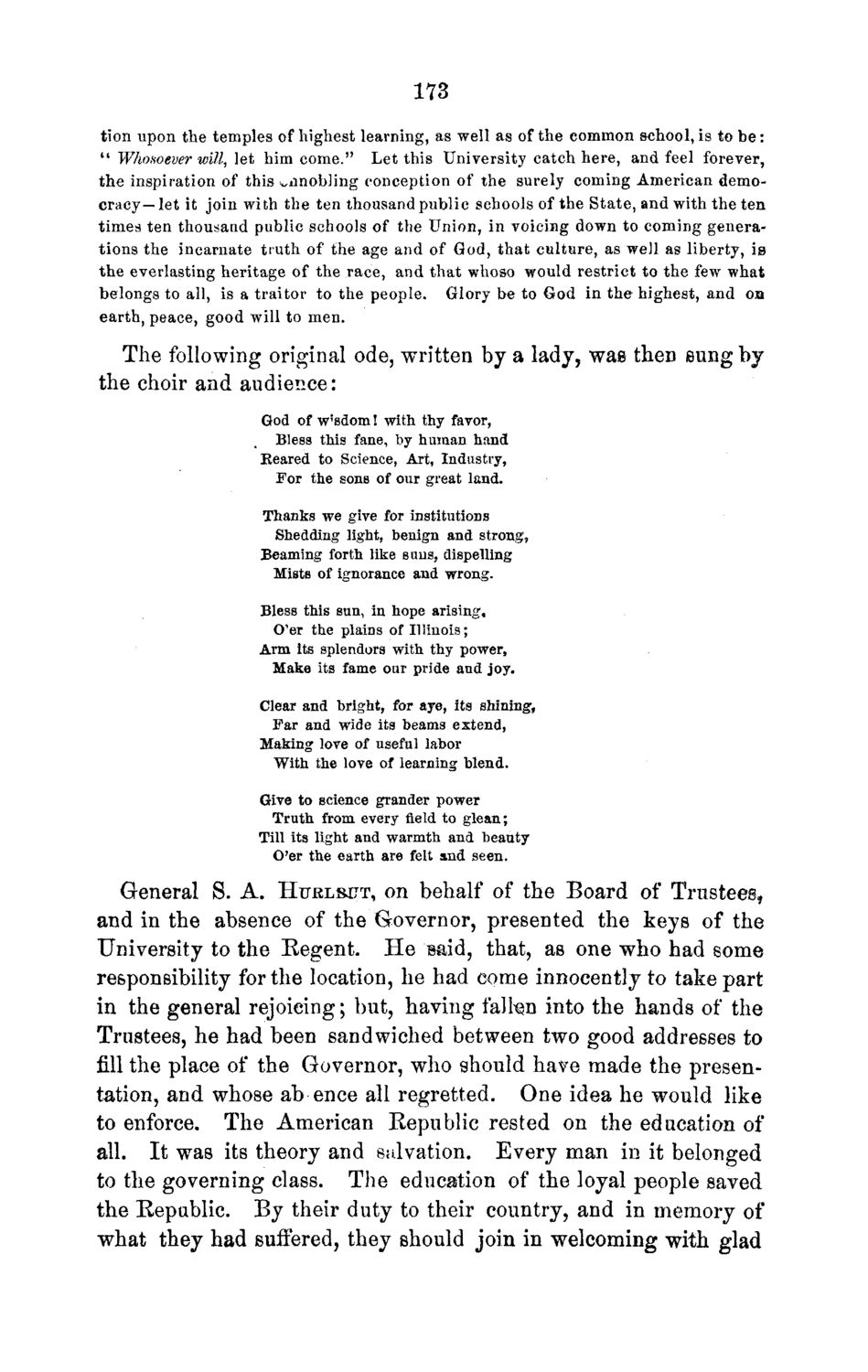| |
| |
Caption: Board of Trustees Minutes - 1868
This is a reduced-resolution page image for fast online browsing.

EXTRACTED TEXT FROM PAGE:
173 tion upon the temples of highest learning, as well as of the common school, is to be: 41 Whosoever will, let him come." Let this University catch here, and feel forever, the inspiration of this ennobling conception of the surely coming American democracy— let it join with the ten thousand public schools of the State, and with the ten times ten thousand public schools of the Union, in voicing down to coming generations the incarnate truth of the age and of God, that culture, as well as liberty, is the everlasting heritage of the race, and that whoso would restrict to the few what belongs to all, is a traitor to the people. Glory be to God in the highest, and on earth, peace, good will to men. The following original ode, written by a lady, was then sung by the choir and audience: God of w'sdom! with thy favor, Bless this fane, by human hand Reared to Science, Art, Industry, For the sons of our great land. Thanks we give for institutions Shedding light, benign and strong, Beaming forth like suns, dispelling Mists of ignorance and wrong. Bless this sun, in hope arising. O'er the plains of Illinois; Arm its splendors with thy power, Make its fame our pride and joy. Clear and bright, for aye, its shining, Far and wide its beams extend, Making love of useful labor With the love of learning blend. Give to science grander power Truth from every field to glean; Till its light and warmth and beauty O'er the earth are felt and seen. General S. A. HURL&IJT, on behalf of the Board of Trustees* and in the absence of the Governor, presented the keys of the University to the Regent. H e said, that, as one who had some responsibility for the location, he had come innocently to take part in the general rejoicing; but, having fallen into the hands of the Trustees, he had been sandwiched between two good addresses to fill the place of the Governor, who should have made the presentation, and whose ab ence all regretted. One idea he would like to enforce. The American Republic rested on the education of all. It was its theory and salvation. Every man in it belonged to the governing class. The education of the loyal people saved the Republic. By their duty to their country, and in memory of what they had suffered, they should join in welcoming with glad
| |